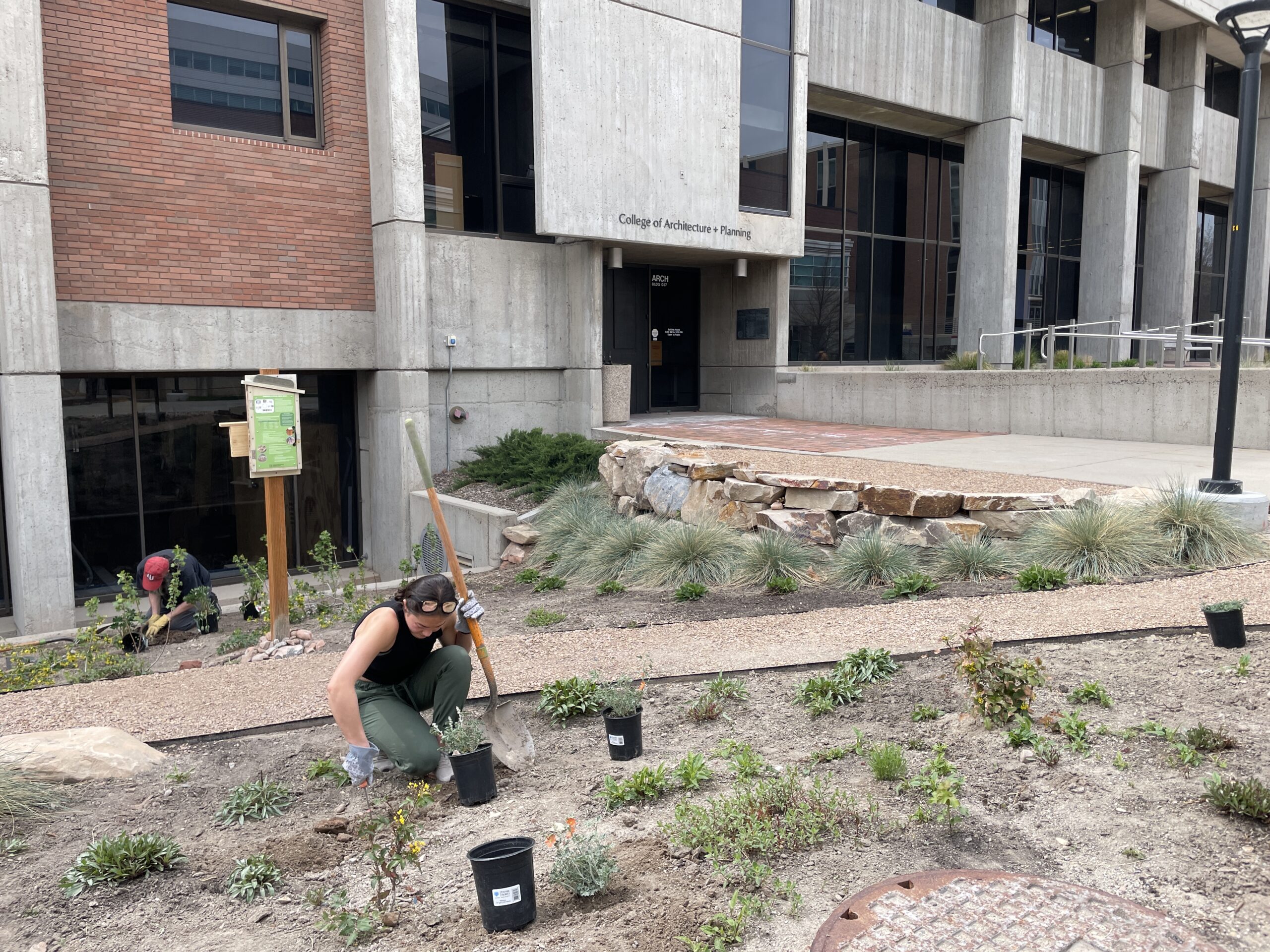
Financed by the Sustainable Campus Initiative Fund (SCIF), members of the Associated Students of the University of Utah (ASUU) and the U of U Beekeepers Association revamped the U’s water and pollinator conservation garden at the College of Architecture + Planning.
Volunteers from the ASUU Enviro Club updated the official Pollinator-Conservation Garden on campus in collaboration with Amy Sibul, associate director for curriculum & scholarship from the Bennion Center, and faculty advisor to the U’s Beekeepers Association.
The garden allows for a habitat that bees, butterflies, hummingbirds, and other pollinators find food and shelter while also transferring pollen from one flower to another. Pollination is an essential component of plant reproduction, allowing plants to set seeds for the next generation. Robust pollination rates support greater biodiversity and functioning within ecosystems.
“As an organization on campus, our goal is to bring awareness about the importance of native pollinators as well as manage the eight-honeybee hives on campus,” said Amalia Friess, U of U Beekeepers Association president and a graduating senior majoring in biology. “This pollinator garden is a space that provides excellent habitat for solitary bees as well as a living classroom for the campus community. Pollinators help create the foundation of all ecosystems, and so it is highly concerning that populations are declining.”
Students added trees and plants to the garden, an initiative started in 2019 through a partnership between the Center for Ecological Planning & Design, directed by Professor Sarah Hinners and the U’s Beekeepers Association.
“The pollinator garden has many benefits, including the function to capture stormwater as it runs off the sidewalk and keep it from flooding the Architecture building,” explained Hinners. “The water thus captured helps sustain the garden ecosystem that supports the pollinators. It helps to reduce the watering requirements of the garden while also filtering the stormwater and recharging our groundwater supplies.”
During the event, volunteers used different plant species suitable for Utah’s climate and checked the native bee nesting boxes on site.
“We want to inform students and the campus community about the need for pollinators and the additional benefits native fauna and biodiversity provide,” said Chimalli Hernandez, part of the ASUU Sustainability Board and a senior student in the Urban Ecology program. “High levels of biodiversity contribute to ecosystem resiliency, and resiliency is something Utah needs with the current environmental issues we face, like drought and air quality.”
Since 2012, the U of U Beekeepers Association has been an ASUU sponsored student club. Members of the organization work with faculty across campus, focusing on pollinator conservation and outreach efforts. They are always happy to visit classrooms or do tabling events to talk about pollinator conservation and bees. If you are interested in knowing more, contact faculty advisor Amy Sibul at amy.sibul@utah.edu.
The U of U Beekeepers keep honeybee hives in three locations on campus: The Kahlert Village, Health Sciences Library, and Marriott Library. If you are interested in joining the club, click here.